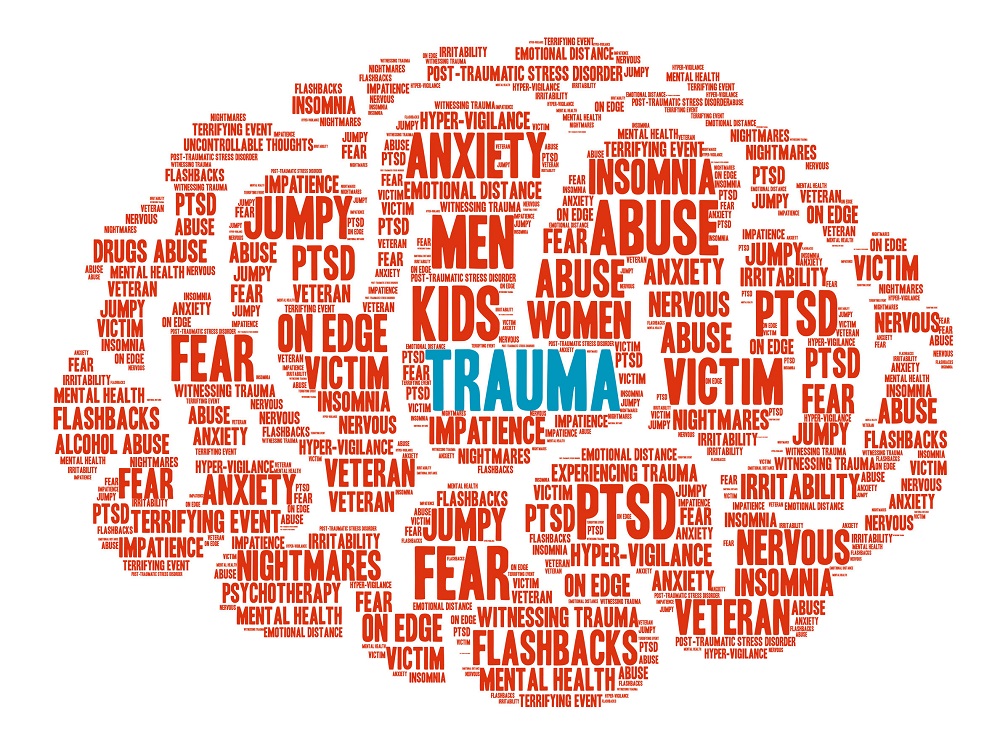Post Traumatic Stress Disorder in Children

Are you worried about a child, adolescent or young adult who has experienced a
single acute trauma (e.g., motor vehicle accident) and/or chronic, ongoing
trauma (e.g., complex trauma)? Is the young person showing signs of a traumatic stress disorder? Do you wonder if he/she meets the criteria for a post traumatic stress disorder? And, if so, what can you do to help?
Dr. O'Connor offers trauma-informed school neuropsychological assessments to children, adolescents and young adults. Her trauma informed assessments help determine whether a young person meets the criteria for a post traumatic stress disorder. The assessment also leads to evidence based interventions to help address the young person's traumatic stress symptoms at school, at home and in the community.
Post traumatic stress symptoms may result from a single acute trauma, like a motor vehicle accident, or more chronic, ongoing forms of complex trauma, like abuse, bullying and maltreatment or what the literature describes as " Adverse Childhood Experiences (ACEs)." Both types of trauma, either that which is associated with a single acute traumatic event, like a motor vehicle accident, or the more chronic ongoing types of complex trauma, including developmental trauma, can result in symptoms associated with a post traumatic stress disorder.
Complex Trauma is associated with interpersonal relationships that involve betrayal by trusted others, and that is ongoing and chronic in nature. Adverse Childhood Experiences interconnect with Complex Trauma, and include abuse, neglect, maltreatment and mental health problems in a parent. Alcoholism, or other substance use disorders, are mental health concerns in a parent that are associated with ACEs and are considered examples of complex trauma.
Complex trauma also includes bullying by a peer or sibling, or exposure to domestic or intimate partner violence, neglect or abandonment by primary caregivers and others in positions of trust, and/or traumatic losses in those relationships. Adverse childhood experiences, which can result in symptoms of complex trauma, including developmental trauma, are examples of ACEs that are associated with Complex Trauma in young people
As many as 50% of children will experience some form of trauma before their 18th birthday.
Yet, few young people will receive the trauma informed assessments they require to determine the extent and nature of the trauma symptoms they show that are associated with a traumatic stress disorder. This applies to children who have suffered a single acute traumatic event, like a motor vehicle accident, or who have suffered, or continue to suffer from Complex Trauma. Those who suffer the latter, including developmental trauma, may be misdiagnosed, with numerous other mental health disorders, when trauma is the primary concern.
One trauma expert, who has explored the effects of child abuse noted that when psychiatrists and psychologists see these children as young adults " they come up with all kinds of diagnoses, when in fact what they are simply doing is clumping together some of the outcomes from the pervasive early trauma."
In the case of child motor-vehicle accident victims these young people often do not receive the comprehensive trauma assessments they require to address their multiple needs, at home, at school and elsewhere.
Traumatic Stress Disorder
Symptoms associated with a traumatic stress disorder include various cognitive, behavioral, social and emotional concerns.These are often associated with the DSM-5 diagnosis of a Post Traumatic Stress Disorder (PTSD). As noted, young trauma victims may be misdiagnosed
with various mental health concerns, when the primary diagnosis is a traumatic stress disorder. These may include depression and/or anxiety or ADHD, and/or
other impulse control or executive function concerns. Symptoms associated with trauma in young people may include withdrawal/avoidant and/or fearful and anxious behaviors, as well as externalizing, acting out and aggressive
behaviors.They may also show high levels of physiological arousal (e.g., hyperactivity) and problems with attention and concentration.
In addition, trauma is a risk factor for psychological problems in children and adolescents that can extend into the adult years and predispose the young person to various psychological concerns across the life span. This includes substance use disorders, such as addiction to alcohol and other drugs. Failure to address the trauma may cloud the lives of these young people, not only during their growing up years, but also as adults. Trauma co-occurs with various mental health concerns, and can exacerbate pre-existing mental health concerns in young people, as well as adults.

Dr. O'Connor's Trauma Informed Assessments Can Help
Are you worried about a young person who is showing symptoms of traumatic stress disorder?
Perhaps he or she has experienced chronic, ongoing forms of complex trauma, or a single
acute traumatic event, such as a motor vehicle accident. Does this young person show post traumatic stress symptoms such as problems with
emotional regulation, high levels of physiological arousal and problems
with attention and concentration.
Dr. O'Connor offers Psychological Testing and Assessment services. These include trauma informed assessments for children, adolescents and young adults.
Young people who suffer from trauma, whatever its root, can benefit from a trauma informed assessment. Trauma assessments determine the nature and extent of the young person's trauma symptoms, and their impact on his or her functioning at home, at school and in the community. They also point to evidence based interventions that can help.
To find out more about Dr. O'Connor's psychological testing services, and how they can help you, help a young person who is showing trauma symptoms, click here.
To learn more about developmental trauma, a form of Complex Trauma and its affects on the developing brain, click here.